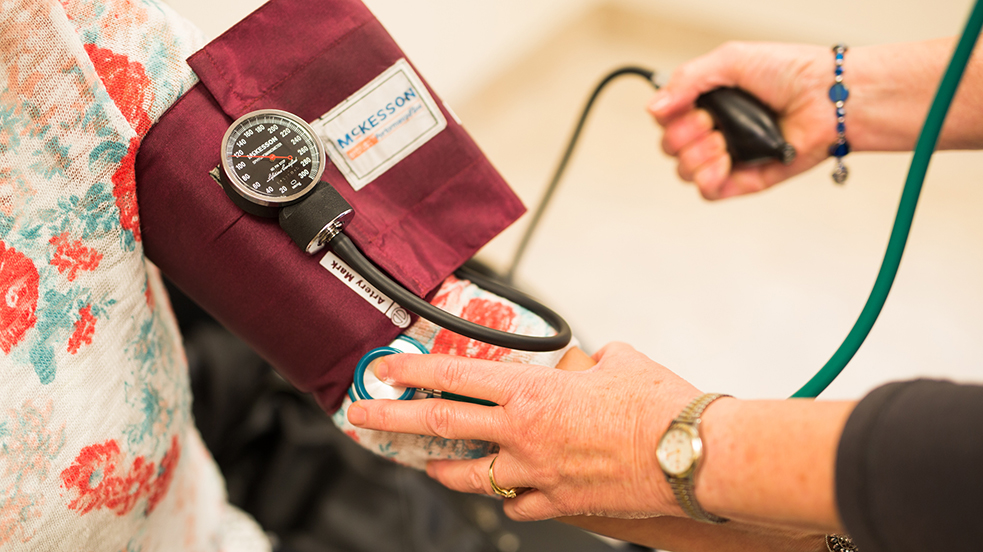Most of us are familiar with hypertension (high blood pressure). But fewer people know about a condition called hypotension, or low blood pressure. Symptoms can be scary, but doctors can help you treat hypotension. Here’s what you need to know.
Two Types of Hypotension
Blood pressure measures the rate at which blood pumps through your body. A normal, healthy range for blood pressure is a reading of 120/80 mm Hg (millimeters of mercury). When you have a lower reading, it can indicate one of two types of hypotension.
- Absolute hypotension is when your resting blood pressure is below 90/60 mm Hg. Underlying causes can include heart disease, dehydration and prescription medicines.
- Orthostatic hypertension is when your blood pressure stays low for more than three minutes when you stand up from a seated or lying down position. This condition occurs because your body can’t compensate for the change in position.
Who’s at Risk for Hypotension
“Hypotension can affect people of any age and background,” says Dr. Abiodun Ishola, an interventional cardiologist at the Florence Wormald Heart and Vascular Institute at St. Elizabeth. “Hypotension — especially orthostatic hypotension — is more common in people over 50. And about 30% of people over 70 have it.”
Dr. Ishola adds that some athletes may have low blood pressure but don’t necessarily experience symptoms.
Symptoms of Hypotension
Unless you have symptoms, hypotension usually is not a cause for concern. The most common symptoms are dizziness and lightheadedness. Other symptoms include the following:
- Blurred vision
- Cold, clammy, pale skin
- Confusion
- Difficulty concentrating
- Fainting
- Fatigue
- Nausea or vomiting
- Sleepiness
- Weakness
If you experience symptoms of hypotension, talk to your doctor. Medical tests can help determine the underlying cause and allow your doctor to determine the best way to treat it.
What Causes Hypotension?
A variety of things can cause hypotension, such as the following:
- Cardiovascular conditions, such as heart failure.
- Conditions of the nervous system, such as Parkinson’s disease.
- Consuming alcohol and recreational drugs.
- Low blood volume, often caused by dehydration.
- Pregnancy (your risk is higher during the first 24 weeks of pregnancy).
- Prescription medications for conditions such as high blood pressure, heart failure, neurological problems and depression.
- Severe infection.
How Low Blood Pressure Affects Your Body
“A major risk with hypotension is that when you become dizzy and lightheaded, you can fall and injure yourself,” says Dr. Ishola. “Beyond that, hypotension can damage organs such as your heart and kidneys. That’s because not enough blood is reaching all parts of your body.”
When not enough blood flows through your body, cells don’t receive enough oxygen or nutrients to function correctly, Dr. Ishola adds. Although rare, people with hypotension can have permanent heart damage or heart failure.
In addition, low blood pressure can sometimes trigger atrial fibrillation (an irregular heartbeat).
Treatment for Hypotension
The first step in treating hypotension is figuring out why it’s happening. Depending on the underlying cause, treatment may be simple, like changing your medication, wearing compression stockings or getting more salt in your diet. Or treatment may involve more complex measures such as a blood transfusion or surgery.
If You Think You Might Have Low Blood Pressure
Make an appointment with your primary care provider if you are concerned about your symptoms. The sooner the doctor can identify the underlying cause, the better.

